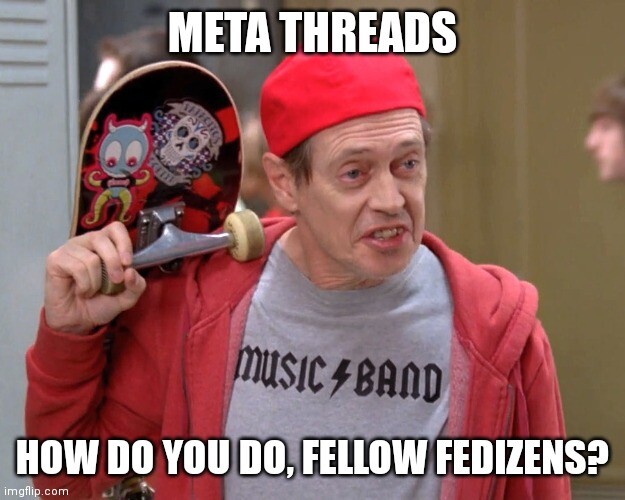Threads, The Fediverse, and the #FediPact

Meta just launched their Twitter competitor, branded as "Threads." While it doesn't have ActivityPub support yet, Meta has announced their plans to add ActivityPub support soon. ActivityPub is the standard protocol used by Mastodon, Pixelfed, PeerTube and other fediverse apps. ActivityPub support would allow Threads users to interact with other fediverse users. In March, when news first leaked that Meta was working on a "decentralized Twitter competitor," fediverse admins and users began using the #FediPact hashtag to discuss whether to preemptively defederate from Meta's servers. When one fediverse site defederates another, the users on either site are unable to see or interact with users and activities from the other site, they effectively don't exist to each other. A large list of admins has already announced their plans to defederate Threads. In my corner of the fediverse, I've seen some argue very strongly for defederation and some express uncertainty and confusion. I haven't seen a lot of strong arguments against defederation, but maybe that's just because those folks are all on Threads or Bluesky (the other billionaire-owned Twitter competitor). Regardless of your opinion on defederation or which platform(s) you end up using, the concerns about Meta are well-founded and important to understand when choosing whether to participate in a platform.
If you're confused about why fediverse admins would want to exclude Meta, this reasoning and history is covered very welll in How to Kill a Decentralised Network (such as the Fediverse). In short, big tech companies have a time-honored and predictable approach to open standards: Embrace, Extend, Extinguish. They embrace the standard, but extend it with nonstandard enhancements that are only available to their users. Once those users are effectively locked-in to that company's software, the company drops support for the open standard. Anyone still using the open standard loses the ability to communicate with users of the company's software, so people are faced with a decision: abandon the open standard, or abandon their friends who use the company's software. The more users the company has, the more incentive people will have to abandon the open standard (economists call this a "network effect"). And so, the open standard is extinguished, or at least relegated to small groups of enthusiasts and purists. This is closely related to what Cory Doctorow calls "enshittification". Essentially, big tech companies invest in attracting users because they expect those investments to pay off eventually, once users are locked-in and the company can do anything and everything it wants to extract profit from those users. While the impact of enshittification on some users might be limited to minor annoyances, it can have more severe consequences as well, especially for marginalized groups. If ignoring hate speech is profitable, or dropping support for visually impaired users, or banning the discussion of gender identity, etc., etc., etc, then well, in the words of Twitter co-founder Jack Dorsey, "every company is for sale to the highest bidder".
The fediverse on the other hand, is not for sale to the highest bidder, because it's not controlled by one company. And it was built largely by marginalized people who had been bullied and harassed off of commercial platforms. Of course the fediverse isn't immune to the systemic problems of larger society, it has been criticized for its whiteness in particular, especially by people of color looking for an alternative to #BlackTwitter. In response to those issues, many people are doing the hard and messy work of making the fediverse more welcoming, because its success depends on people showing up voluntarily, as opposed to corporate alternatives which succeed by using their power and privilege to force users to stay, even when it's harmful, as long as it's profitable. But if a company like Meta joins the fediverse, they will be the largest site on the fediverse, and their users, their software, and ultimately their business model, will have the most influence on its future. Cindy Cohn and Rory Mir of the EFF cautioned against the embrace, extend, extinguish scenario, among others in their aptly titled The Fediverse Could Be Awesome (If We Don’t Screw It Up).
So while you may or may not agree with defederation as the best way to address the threat that embrace, extend, extinguish poses to the fediverse, it's hard to deny that the threat is very real and needs to be addressed for the fediverse to survive as a truly decentralized network, not under the control of any single company.

Add new comment